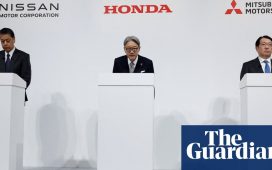JAKARTA The development of solid state batteries is now a major focus in the electric vehicle industry. This technology is seen as the key to encouraging the mass adoption of electric vehicles, with the promise of increasing travel distance, accelerating charging, and providing a higher level of security.
This battery development is not only carried out by large automotive manufacturers, but the whole world is now competing to be the first to commercially release solid state batteries.
Solid state batteries, particularly the all-solid-state battery (ASSB) type, are the main targets of many leading car manufacturers. The advantages in terms of capacity and security make it difficult to match these batteries are also more resistant to fire risk. However, the challenges are not small; ASSB production is very complex and requires high technological innovation.
Japan is at the forefront of this race. Automotive giants such as Toyota, Honda, and Nissan are competing to present breakthroughs.
Nissan, with its Leaf model recognized as one of the pioneers of modern electric cars in April introduced their ASSB battery plant in Yokohama, marking a major step in efforts to market ASSB-based electric vehicles by 2028. After 17 years of struggling to develop this technology, Nissan believes the ASSB will become a game-changer, offering a double energy density over conventional liquid electrolyte batteries, with a much lighter size and weight.
However, Toyota does not want to miss it, they plan to release a limited electric car with this battery by 2025. With more than 1,000 patents related to solid state batteries, Toyota could be the first to release a mass electric vehicle with this technology.
It should be remembered that not only are Japanese manufacturers aggressive, but other world manufacturers don’t want to lose. Volkswagen, last July, announced a partnership with QuantumScape, a startup from the United States, to produce solid state batteries. Meanwhile, Ford is also collaborating with Solid Power to develop similar batteries, in hopes of improving the performance and distance of their electric vehicles.
Don’t Forget China
As the largest producer of electric and battery vehicles, China does not want to be left behind in this global race. In early July, Chinese scientists claimed to have developed a lithium solid state battery at a much lower production cost of less than 10 percent of conventional battery costs.
This move brings China closer to its ambition to be the first to deliver future battery technology that could revolutionize the electric vehicle industry, with faster charging times, better performance, and higher security standards.
According to a South China Morning Post report last July, researchers from China’s University of Science and Technology (USTC) in Anhui Province have created a very promising solid state electrolyte for commercial applications.
When Is Solid State Battery Available In The Market?
Although the potential for solid state batteries is very large, such as less than 10 minutes of charging that can reach more than 1000 km, this technology is still in the development stage and is not yet mass available.
Technical challenges and high production costs are still a major obstacle before these batteries can be widely adopted in the automotive industry. However, with various innovations that continue to emerge, the day where solid state batteries will make electric cars increasingly popular with consumers around the world is also getting closer.
The English, Chinese, Japanese, Arabic, and French versions are automatically generated by the AI. So there may still be inaccuracies in translating, please always see Indonesian as our main language.
(system supported by DigitalSiber.id)












